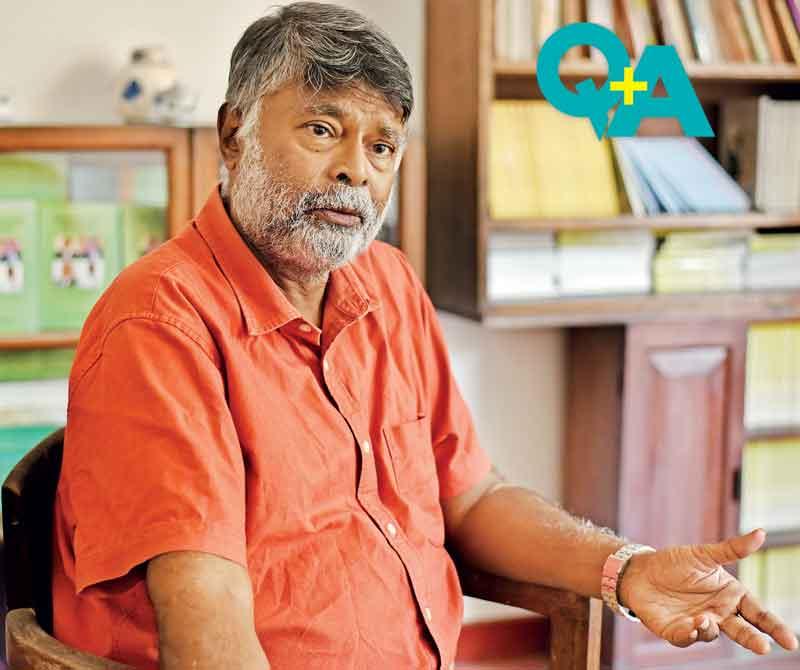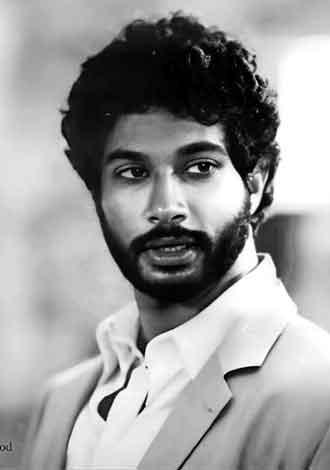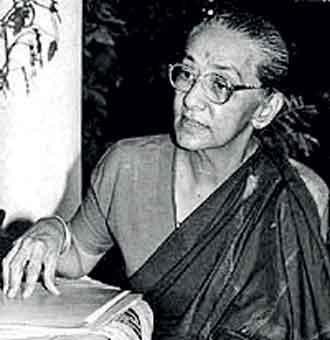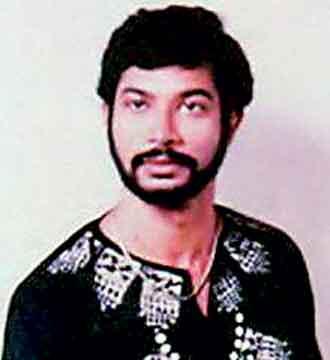’’Richard Knew He Would Be Killed”

Prof. Rajiva Wijesinha
pic by Nisal Baduge
After Richard’s death, Ranjan apparently called the death squads and told them, “Up to today, anything you did, we allowed. But from now on, if you do anything, it’s your responsibility.”
After Richard was killed, Lalith even took some of his friends out of the country
One story goes that Richard managed to escape using a route over the rooftops that he had prepared, but I don’t know the exact details
During the referendum, we were all strongly against it. But then, Lalith convinced Richard to support it. I think he was already playing a role under Lalith at that point
Today, February 18, 2025, marks the 35th year of the abduction and brutal killing of journalist, teacher, poet, playwright, actor and activist Richard de Zoysa.
He was abducted by a State-sponsored death squad on February 18, 1990, in the presence of his mother Dr. Manorani Saravanamuttu. Richard was brutally assaulted, shot dead and his body thrown into the sea. His body with a broken jaw, gun shots to the head and throat were a sheer witness to the inhumane torture Richard had undergone.
There are only a few close associates who knew what went through the lives of Richard and his mother and one of the closest friends of the slain journalist, Prof. Rajiva Wijesinha spoke to Daily Mirror about what he knew about the Zoysas, the same title that the mother and the son used to call each other. The leader of the Liberal Party and former Minister and politician himself, Prof. Rajiva spoke in detail, about the vision and mission Richard had and his close association with some of the renowned politicians in the country. In this candid interview, Prof. Wijesinha boldly exposes some of the bitter truths behind politics at the time of Richard who was actively involved in politics.
Excerpts;

Richard de Zoysa was a writer, human rights activist and an actor
|
 How did you come to know Richard?
How did you come to know Richard?
Well, Richard and I, were at school, but he was four years younger. My first memory of him is this little boy who won the Best Actor prize in the house drama competition. We were all furious, because, We were 16/17 and this 12-year-old took the prize!
After school, I took off for university. When I came back in 1975, one of my friends had invited me for dinner. They helped shape drama at S. Thomas’—Rohan Ponnaiah and Steve De La Zilwa and Richard. By then, Richard had become a great actor, taking on leading roles after Rohan and the others left. That night, after dinner, we walked home, Richard went to Kirulapone, and I went to England for my doctorate.
When I returned in the 1980s, many of my old friends had moved on with their careers, but Richard had free time. We became inseparable. He was my main companion as I had a passion for making literature come alive.
I organised performances through English associations, presenting poetry and plays in ways that encouraged students to interpret them differently. At the British Council, I would stage Romeo and Juliet in two ways to challenge the idea that Juliet must always be timid or that Romeo must always be bold. Richard thrived in these performances, bringing the literature to life.
When I became a Sub-Warden at S. Thomas’, I introduced many reforms. Though they were successful, I was dismissed after uncovering financial misconduct—someone had pocketed six lakhs, a huge sum at the time. Richard then joined the school as a teacher, and the students loved him. But after I was sacked, they forced him out too, saying, “You are too loyal to the Sub-Warden and not to the college.”
For about a year, we ran a tuition class together. Richard was also an excellent poet, and we often wrote. But after Black July in 1983, we realised tuition classes weren’t enough.
At the time, the British Council appointed me as Public Relations and Cultural Affairs Officer, where I created programmes that celebrated Sri Lankan writers who were largely overlooked —Jean Arasanayagam, Anne Ranasinghe, and Patrick Fernando. Universities were often hostile to them, dismissing their work. We published ‘The New Lankan Review’ and took our performances to teacher training colleges in Penideniya and Pasdunrata. We also travelled to rural areas like Batticaloa. However we could not go to Jaffna or Galle. Richard performed brilliantly in these programmes, and we remained very close during that period.

Manorani never called Richard ‘Richard’—she called him Zoysa. He called her Zoysa, too! A mutual nickname, as if they were the same person: Zoysa and Zoysa
|
 How do you describe Richard?
How do you describe Richard?
Well, he was just full of life and an absolutely brilliant actor.
For example, I’d explain a scene in the car, say Macbeth, and tell him, “First, play Macbeth as a strong warrior. Then, as a weak man dominated by Lady Macbeth.” And Richard would switch between the roles seamlessly.
I travelled often, and when I requested leave, my boss back then allowed it as long as I ensured work continued. I asked Richard to cover for me. When I returned, my boss said, “De Soyza has no administrative skills”. The following year, when I applied for leave again, he told me, “Anyone but Richard de Soyza.” Instead, Richard introduced me to Ranmali Pathirana, who did an excellent job.
During those years, we staged productions like ‘The Merchant of Venice’ and published plays. But as I became more involved in other work, Richard helped Lalith Athulathmudali, who was the Minister of National Security. Lalith was doing a lot of propaganda work trying to win hearts and minds. He worked to improve the military’s image, promoting discipline among soldiers who had previously acted with impunity.
However, Richard also got involved with a group of kids from Royal College who had come from rural villages. These scholarship boys were radical and intelligent. They performed a wonderful skit on private medical colleges. Richard then asked if he could bring his Royal College students, who spoke Sinhala. I welcomed the idea, and they bonded instantly.
One of those students, Madhura, was a gifted performer. In a skit, he played a farmer leading his bullocks, symbolising JR’s government. My father laughed hysterically when he saw it. But later, that boy was arrested. In 1988, while still a student, he was taken into custody and never seen again.
 There was also an allegation against Richard that he was working for JVP, any comments?
There was also an allegation against Richard that he was working for JVP, any comments?
There was a story that Richard has been telling others not to read news for state TV. When I asked him about this, he explained, “I was only warning them to be careful. They could be killed”.
His close friend Ravi John was upset, saying Richard was putting himself in danger. Some believed Richard sympathised with radical students, but I never saw evidence of him being involved in JVP activities.
There was even a rumour that Richard had sheltered Somawansa Amarasinghe, but I never heard any evidence to support those claims.
 Did at any point Richard feel that he is being hunted?
Did at any point Richard feel that he is being hunted?
Yes. The last time I met him was in December 1989 at the British Council, where he was doing a programme. There were only a few people present, including some old friends. That night, he called me and asked if I had noticed a man sitting at the back. He was clearly uneasy and later asked if he could stay with me. He ended up staying for two nights, and I realized he was deeply frightened. He told me, “That man was following me”.
So, he was well aware that he was being followed. He even had the option of leaving the country since he had a job in Portugal. He left for a while and seemed happy. But then, he returned, perhaps to say goodbye. I don’t know for sure, but he left again soon after.
 Was Richard at any point involved in active politics?
Was Richard at any point involved in active politics?
Well, I think he was very sympathetic to certain causes. Whether he was directly involved, I can’t say. But by that stage, he had lost faith in the other political parties. Part of that was because Lalith Athulathmudali had been sidelined. Richard was quite fond of him.
 The film ‘Raani’ that is now being screened in cinemas indicates that there was some kind of a relationship between Lalith and Dr. Manorani. Now that Richard was also friendly with Lalith, could such a drastic destiny fall on Richard if the family had a close relationship to a MP from the then existing governement?
The film ‘Raani’ that is now being screened in cinemas indicates that there was some kind of a relationship between Lalith and Dr. Manorani. Now that Richard was also friendly with Lalith, could such a drastic destiny fall on Richard if the family had a close relationship to a MP from the then existing governement?
They were very close—very friendly. I used to visit Richard at his home, and Lalith would be there. Whether it was an affair, I don’t know. But I won’t deny the possibility. What is certain is that Richard and Lalith were very fond of each other. After Richard was killed, Lalith even took some of his friends out of the country—people like Waruna Karunathilake and Arjuna Ranawana.
There was also a boy named Vishwanatha Dahanayaka, who was a great friend of Madhura and Richard. One story goes that Richard managed to escape using a route over the rooftops that he had prepared, but I don’t know the exact details. Vishwanatha is still alive; I believe he’s in Australia now. When Manorani was in the hospital, he and I went to see her together.

 But did Richard play any role in disseminating human rights violations in the country to the international media?
But did Richard play any role in disseminating human rights violations in the country to the international media?
Yes. He worked for the Inter Press Service, or a similar organisation, which allowed information to be disseminated internationally. He wrote about what was happening. A lot of people were involved in that, so it wouldn’t have gone unnoticed.
Manorani once told me something—whether it’s true or not, I don’t know. She said that the Minister Ranjan Wijeratne had become uncontrollable. Even after Wijeweera was captured, the violence should have ended, but Premadasa couldn’t rein him in. After Richard’s death, Ranjan apparently called the death squads and told them, “Up to today, anything you did, we allowed. But from now on, if you do anything, it’s your responsibility.”
There was a difference between the army death squads and the police squads. The army, though ruthless, followed some form of structure—they wouldn’t just kill suspects randomly. They captured people like Wijeweera and Gamanayake. But the police squads, with people like Udugampola, were much more ruthless and unbalanced.
 Did Richard show any interest in joining politics, at least later onwards?
Did Richard show any interest in joining politics, at least later onwards?
He was always interested in politics. He worked briefly with the Liberals. During the referendum, we were all strongly against it. But then, Lalith convinced Richard to support it. I think he was already playing a role under Lalith at that point.
 Was Richard working with Lalith against the former’s role in fighting against the then-existing terror and human rights violations?
Was Richard working with Lalith against the former’s role in fighting against the then-existing terror and human rights violations?
Well, Lalith was a tough leader, but he wasn’t a racist. That was something Richard appreciated. Lalith rose to prominence in a political landscape where Premadasa and the old guard hated each other.
Lalith had a difficult position. Initially, J. R. Jayewardene wanted to promote Paul Perera, but later, Lalith was made Minister of National Security. After the 1983 riots, when Tamil civilians were being attacked, J.R went on television and effectively justified the violence, which led to even more killings. The next day, Premadasa tried to shift the blame, saying the communists were responsible, and arrested members of the LSSP and JVP went underground.
From 1984 onward, there was an attempt to curb anti-Tamil sentiment, but by 1985, J. R. once again escalated tensions. He sent a team to Thimpu, not politicians, but known hardliners like S. L. Gunasekara. Lalith’s position was always precarious. He tried to make a difference, but in the end, he was outmanoeuvred—particularly during the Vadamarachchi operation. He thought he was going to capture Prabhakaran, but when India intervened, J. R. halted the offensive, leaving Lalith helpless.
 Richard was aware of the danger he had. But why did he come back?
Richard was aware of the danger he had. But why did he come back?
There are different stories. Some say he thought he was safe because he had managed to escape the first time. Others suggest he had an exam to complete for a degree. It’s unclear.
 And also, Professor, this film shows that Manorani, who was devastated, had been used by the politicians, for their political campaign. Is that true?
And also, Professor, this film shows that Manorani, who was devastated, had been used by the politicians, for their political campaign. Is that true?
Well, let’s put it this way—there was no one else willing to speak out at the time. Manorani wanted to draw attention to these issues, and I think she was right to do so.
She once told me, “I was lucky. My son’s body came back. I could insist on an inquiry.” She recounted a visit from a woman whose husband, trade union leader Ananda Sunil, had been abducted. The woman had identified the perpetrators but was threatened with the lives of her children if she spoke out. She told Manorani, “I’m sorry. I couldn’t risk my children’s lives.” But Manorani was fearless. She said, “They may threaten me, but I don’t care. If I am killed, I’ll be happy.”
Everything she did was for Richard. He was her whole world. After divorcing her husband, she moved to Africa as a doctor and later remarried. Richard, upset by this, returned to Sri Lanka and manorani left her partner and decided to come back to her son. But when she left her second husband and came back, they became inseparable. They weren’t just mother and son—they were best friends.






 SUSITHA FERNANDO
SUSITHA FERNANDO